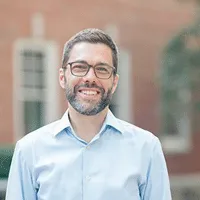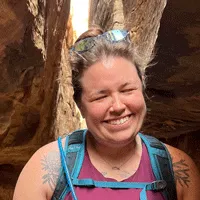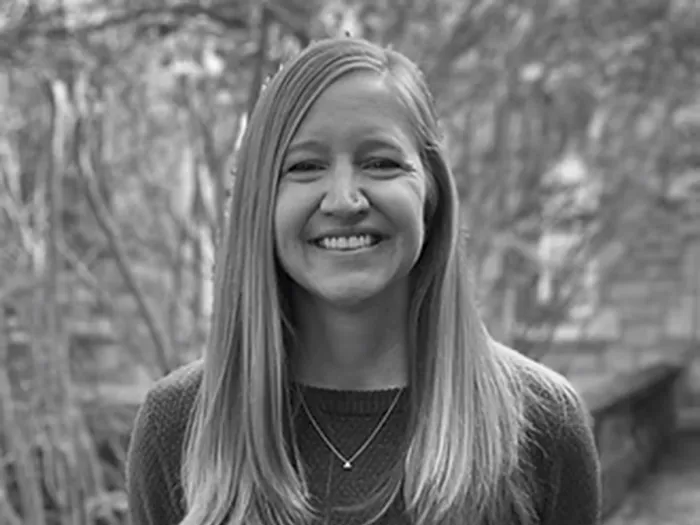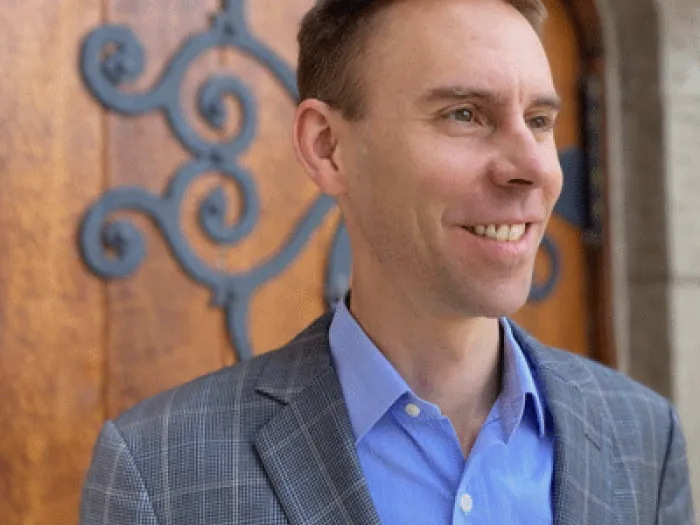PC(USA) new worshiping community pastors join a panel exploring faith communities’ shrinking membership rolls
‘Talk Pittsburgh’ segment also looks at what might be done to turn the trend around


LOUISVILLE — On Monday, pastors from a new worshiping community joined a pair of scholars in the studios of KDKA, the CBS affiliate in Pittsburgh, to discuss a recent study of why people are leaving faith communities and what those communities might try to reverse the trend.
Heather Abraham, the host of “Talk Pittsburgh,” moderated the nearly eight-minute discussion, which can be viewed here. Precipitating Monday’s gathering was a study by the Public Religion Research Institute, “Religion and Congregations in a Time of Social and Political Upheaval,” released in May and available here.
Panelists were:
- The Rev. Erin Angeli, associate pastor for Queer and Neighborhood Ministries at Commonwealth of Oakland, a new worshiping community in Pittsburgh.
- The Rev. Mike Holohan, pastor of Commonwealth of Oakland.
- Dr. Scott Hagley, the W. Don McClure Associate Professor of World Mission and Evangelism at Pittsburgh Theological Seminary.
- Dr. Brock Bahler, who teaches in the Religious Studies department at the University of Pittsburgh.
The PRRI survey reported on several reasons people gave for leaving their faith community, including they no longer believe in the faith community’s teachings, negative teachings or treatment of LGBTQ+ people, their family was not religious when they were growing up, church scandals, a traumatic personal event, or their congregation was becoming too political.

Hagley pointed out some of those trends go back decades and are “due to a whole variety of social and cultural trends as well.”
Many of Bahler’s students identify as non-religious or as spiritual but not religious. Many don’t trust religious institutions, “and yet they remain interested in spiritual questions and are interested in learning about other faith traditions,” Bahler said.

“Where there’s space to build on,” Holohan said, “is talking about what are the responses and what are the changes that are needed to address these things?” Some faith communities focus on “technical things, like, ‘Let’s have a high production worship service or meet in a coffee shop or meet online.’ Those are fine, but they don’t really address the fundamental issues that are happening. There really needs to be a change of culture in Christian churches.”
People who aren’t regularly attending worship services and other church activities “still tend to have spiritual experiences,” Angeli said. “It’s just that because of the way they’ve experienced the church, the language for how to describe those experiences has been taken away.”

“They want to cultivate ways of making meaning,” Bahler said, “but they don’t trust the institution as a whole.”
“Our congregations really depend on people giving their time and money, and knowing how to serve on committees,” Hagley said. “For a lot of reasons, Americans are moving away from that kind of participation.”
“Our ways of organizing need to change, and that’s why I think the work that Mike and Erin are doing — being very creative about forming communities in new ways — these are the things to pay attention to.”
People may be losing their beliefs, but that’s not necessarily the same thing as no longer believing, Holohan pointed out.
“The thing about Christian communities is that membership often hinges on having similar or identical beliefs,” Holohan said. “So, when someone starts to question or to doubt or let go of some of those beliefs, it can create a lot of anxiety. There’s a lot at stake. You might lose a really supportive community. You might even lose some of your primary relationships … and so folks are really looking for a safe space to explore, and also maybe to add new things to their practice of Christianity.”
Commonwealth of Oakland has a practice called Forest Church. “We go into the woods, and we take 20 minutes to simply be in Creation together and to contemplate what God might have to say through nature,” Angeli explained. “Then we come back, and we discuss what we saw, what we heard and what we felt. It kind of turns into a sermon all together.”
“It’s meant as a rehabilitative tool,” Angeli said, “to help people who have experienced church hurt come back into a spiritual space without those triggers.”

Then Abraham wondered: Where do we go from here?
“I do think that what we need are creative experiments in forming community,” Hagley said. “I don’t think that people are not looking for God. I don’t think God is not a present being that is active in some way, shape or form in the world. The invitation to communities of faith is to connect themselves to that.”

“I think we need to redefine how we define what religion is,” Bahler said. “We tend to think of religion as believing in a list of doctrines, whereas many religious traditions are focusing on practices and focusing on how to cultivate an authentic faith rather than performing a checklist. That kind of redefining could be very productive.”
You may freely reuse and distribute this article in its entirety for non-commercial purposes in any medium. Please include author attribution, photography credits, and a link to the original article. This work is licensed under a Creative Commons Attribution-NonCommercial-NoDeratives 4.0 International License.



